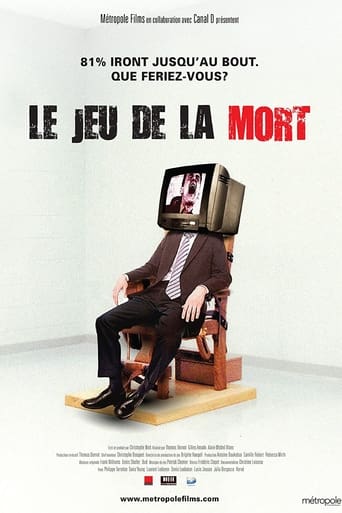nkdavis89
This movie recreated the circumstances of Milgram's experiment quite well, it would seem. The first question I'd have you ponder is why the filmmakers never addressed the ethical dilemma the original study presented, and why it has never been recreated.There were some slight modifications to Milgram's study, all of which I agree were beneficial and necessary. However, the film essentially fails to connect our obedience of authority figures to our obedience of TV. Essentially, the film states "We watch 14 years worth of TV in our life. Therefore TV will be able to force us to be obedient". This simply is not proved in the film. One way to prove it may be to compare La Zone Extreme to another experiment, however this one taking place in a classroom, private home, doctors office, business office, etc -- then showing a difference in rate of obedience. Essentially, the film does what any good social scientist should never do: assume that correlation is causation. Just because we watch lots of TV, and we also listen to authority figures who are on TV, that does not prove that we listen to them BECAUSE they are on TV (As opposed to any other authority figure not on TV, eg: Teacher, Scientist, Parent, Coach).The film was interesting to watch, though I have trouble buying into this movie because this experiment is highly unethical, and there isn't a university or scientific journal that could touch this with a ten foot pole. I don't know how on earth they got approval to film such an experiment - not that I haven't been curious about a modern day recreation of Milgram's classic experiment since the day I learned about it in Psych 101! For this reason I enjoyed the film but hesitate to recommend it to others who may not understand the limitations of this experiment, the fact that it can't be generalized to the public, or the irreversible psychological harm it could inflict upon the unknowing participants.


